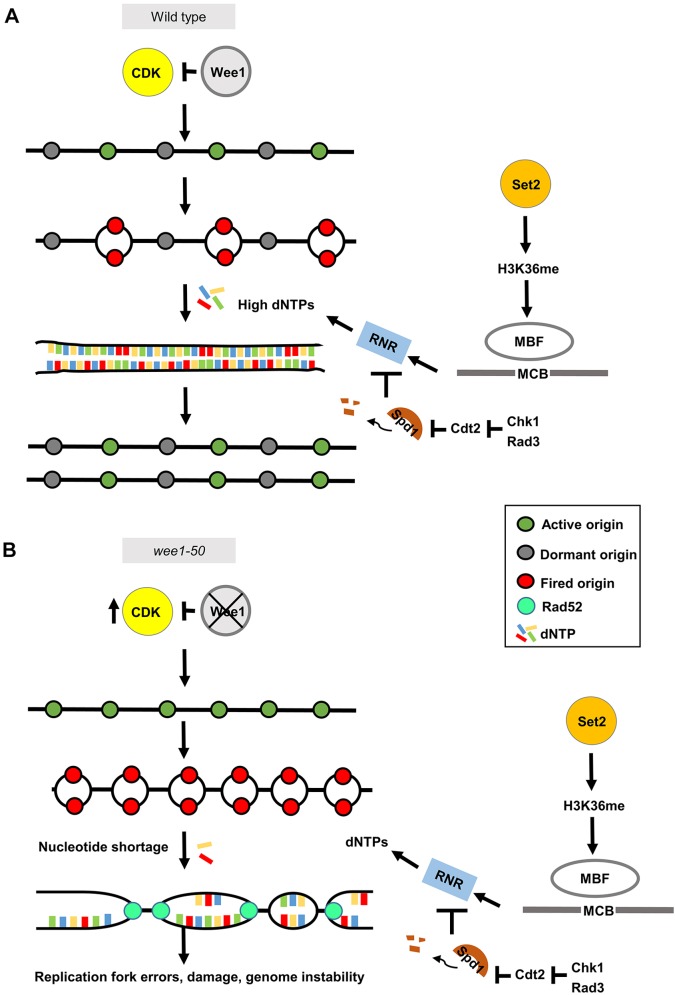Fig. 8.
Wee1 limits replication stress and suppresses the synthetic lethality of Set2, Rad3 (ATR) or Chk1 loss. (A) In WT cells, Wee1, the mitotic inhibitor, controls the firing of dormant origins through limiting CDK activity during DNA replication. Set2-dependent H3K36me regulates MBF-dependent RNR expression during the cell cycle and in response to genotoxic stress. Checkpoint activation leads to degradation of Spd1 and to increased dNTP supply. Thus, Wee1, Set2 and cell cycle checkpoint proteins (Rad3 and Chk1) work together to regulate the supply of dNTP levels to limit replication stress and maintain genome stability. (B) Increased CDK activity (resulting from Wee1 inactivation) increases replication origin firing leading to increased dNTP demand. This in turn leads to replication stalling and to DNA integrity checkpoint activation. Failure to increase dNTP supply (e.g. loss of Set2, Rad3 or Chk1) when dNTP demand is high leads to replication catastrophe. See text for details.

